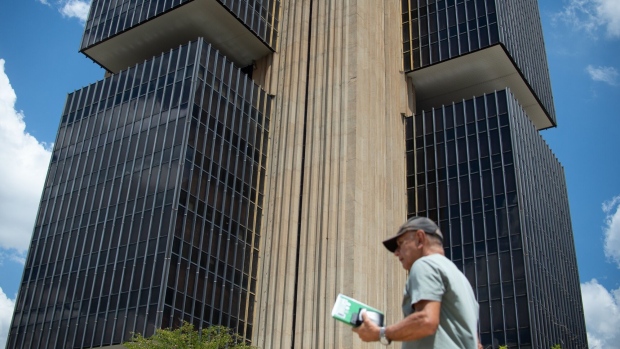Feb 27, 2024
Brazil’s Wildly Popular Instant-Payment System Is Going Global
, Bloomberg News

(Bloomberg) -- Brazil’s instant-payment system has quickly become a hit at home, with more than 160 million users since it was launched by the central bank in late 2020. Now the plan is to take it global.
As policymakers from the Group of 20 Nations meet in Sao Paulo this week, Brazil’s central bank is discussing how to make cross-border payments faster and cheaper. It considers its own free-transfer system, known as Pix, as part of the answer.
Pix now surpasses credit and debit cards as the preferred method of payment in Brazil, sparking interest across Latin America, Europe and Africa, where authorities are trying to understand the key to the platform’s popularity.
Brazil’s central bank is considering agreements to connect Pix with platforms across the world, which would allow the system to reach far beyond Brazil’s borders. Italy has been studying Pix and has shown interest in a bilateral agreement.
“Many jurisdictions have approached us to explain the infrastructure, its design and its success,” said Mayara Yano, one of the analysts behind Pix, in an interview.
No Fees
The platform allows customers to transfer money instantly to a bank account or digital wallet, around the clock and without fees. The app became ubiquitous in the country within months, with its rapid take-up surprising even its own creators.
The Bank of International Settlements published a case study on it last year. And it’s one of the domestic instant payment systems that it’s looking to connect through its Nexus project.
Five Asian countries are testing Nexus, a platform intended to facilitate instant cross-border transactions, according to BIS. Brazil’s central bank considers it a “promising path” for Pix to gain global scale beyond bilateral agreements, Yano said.
But Pix is already spreading to countries that receive a large number of Brazilian travelers. In neighboring Argentina and Uruguay, some fintechs and regional banks are allowing Brazilian tourists to pay restaurant and hotel bills with the system.
Brazilians pay in reais through a QR code linked to a digital wallet or a payment processor, while businesses receive their money instantly in domestic currency, US dollars or a stable coin.
Brazil’s central bank chief Roberto Campos Neto said the technology can help build a more efficient and inclusive financial system in a country where around 30% of the population didn’t have bank accounts prior to Pix. After its launch, over 70 million customers made their first digital transfer, and now only 16% don’t have a bank account.
“Pix played a pivotal role in the financial inclusion of millions of Brazilians,” Campos Neto said during a speech opening Brazil’s presidency of the G-20 in December.
©2024 Bloomberg L.P.





